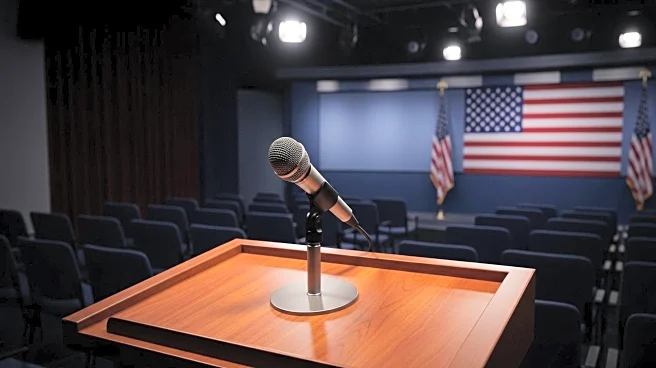What's Happening?
The Pentagon, under the Trump administration, has introduced new restrictions requiring journalists to pledge not to obtain unauthorized material, even if unclassified. This policy, part of a broader crackdown on press freedom, allows the Pentagon to revoke press credentials for non-compliance. Defense Secretary Pete Hegseth has been tightening media access, citing security concerns. The move has sparked criticism from press freedom advocates, who argue it undermines independent reporting and transparency.
Why It's Important?
This development raises significant concerns about press freedom and government transparency. By restricting journalists' access to information, the policy could limit public oversight of military and defense activities. The move reflects broader tensions between the Trump administration and the media, highlighting ongoing debates about the balance between national security and the public's right to know. The policy's implications for journalistic practices and democratic accountability are profound, potentially setting a precedent for future administrations.
Beyond the Headlines
The policy may have long-term effects on the relationship between the media and government institutions, potentially leading to increased self-censorship among journalists. It also raises ethical questions about the role of the press in holding power to account and the potential chilling effect on investigative reporting. The response from media organizations and legal challenges could shape the future of press freedom in the U.S.










